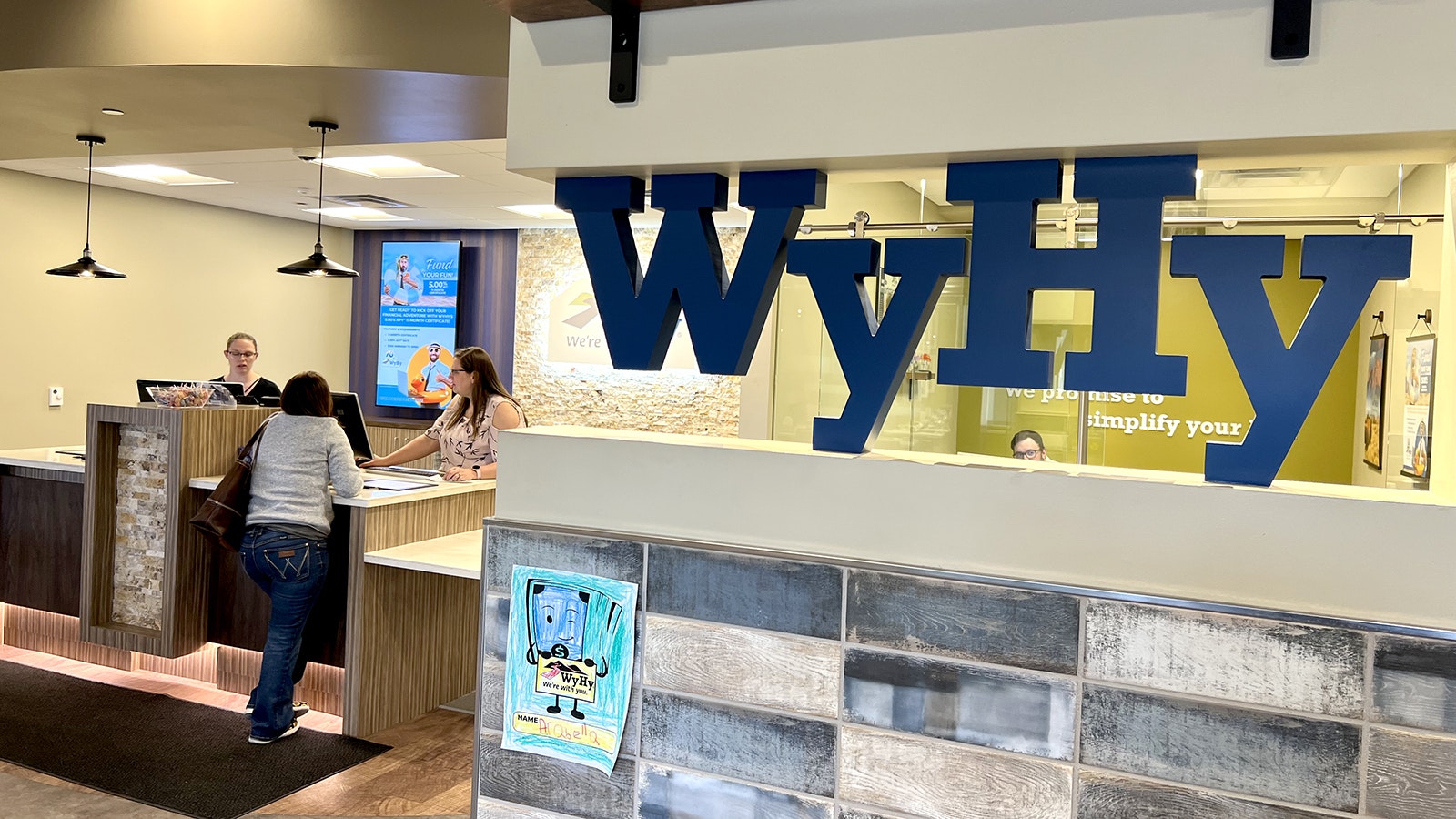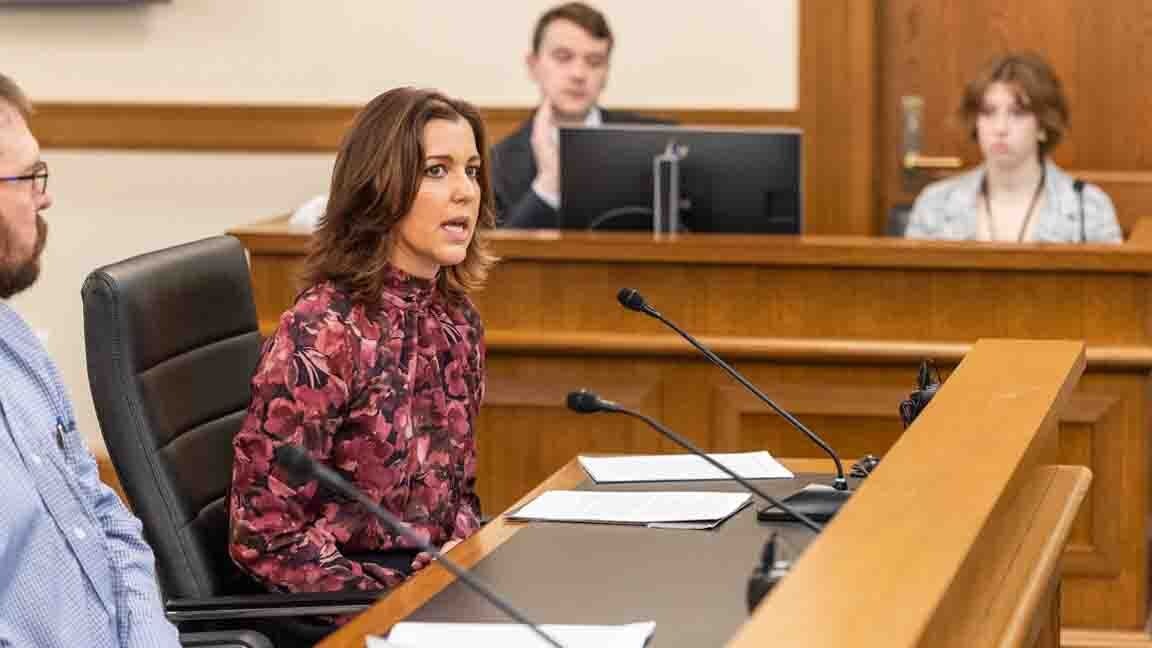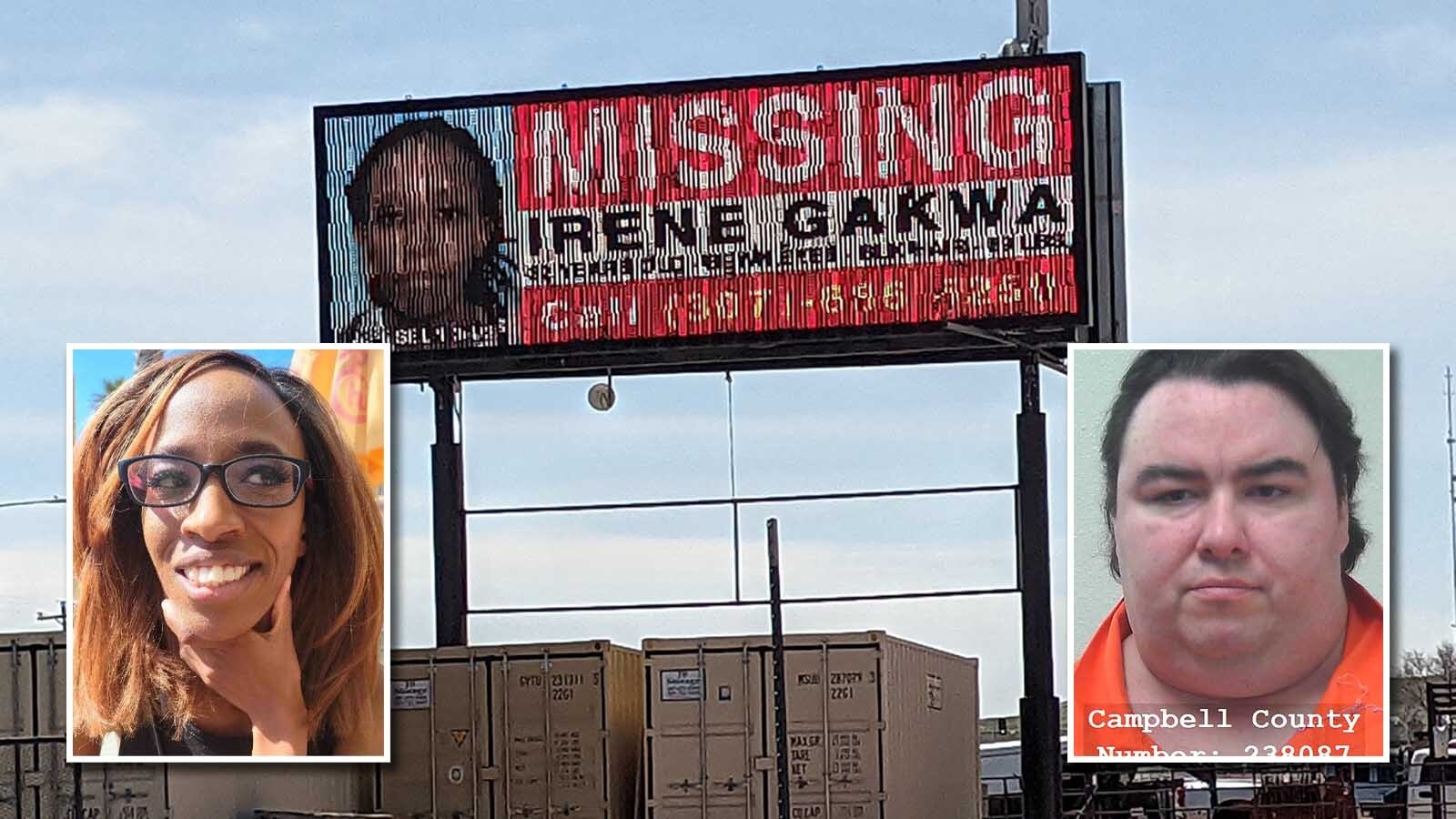Nobody thought twice when a woman strode into a Cheyenne bank Monday and opened an account.
But the red flags started waving – and bank personnel foiled the largest case of alleged check fraud the WyHy Federal Credit Union in Cheyenne has ever seen, a banking director told Cowboy State Daily on Thursday.
The woman, Pamela Kubesh, 55, of Wisconsin, now faces federal charges of defrauding the United States government on evidence she tried to deposit a nearly $1 million U.S. Treasury check under someone else’s name.
Andrea Valois, WyHy director of retail, told Cowboy State Daily a check fraud nearly $1 million was unheard-of for the institution before Monday.
“This is crazy,” she said, adding that there was no way the credit union — or any banking institution — would have cashed it, but Kubesh was likely trying to get it deposited into the account and then funneled into different cash applications or outlets.
It Was Washed
Kubesh reportedly entered the bank in a red shirt and black coat Monday afternoon and started setting up an account under the name of a Los Angeles, California, resident with the initials NJR.
Everything went smoothly at first. Kubesh said she’d followed her job to Wyoming and presented a California driver’s license.
But when the member service advisor helping her asked her for her Social Security number, the new client hesitated, Valois said.
“She had to look at a document that showed her Social Security number,” she said. “She didn’t know it off the top of her head, which is unusual.”
The Social Security number was issued in 2011, which also caught the attention of bank employees, Valois added.
Once the new account was open, the woman presented “this very large treasury check.”
And the check was real — sort of.
A federal affidavit filed Tuesday in the U.S. District Court for Wyoming says it was from the U.S. Treasury, made payable to NJR for $985,020.
Treasury Special Agent Bradley Peters later confirmed while investigating the case that the Treasury Department did issue that check for that amount and to that person. But one of the lines detailing the payee information had been removed, reportedly.
That’s because it was “washed,” Valois said.
“The check itself looked as if it had gotten wet before. That was kind of strange as well,” she said, adding that some check thieves use a washing procedure that involves wetting the check and removing information from it.
The woman succeeded in depositing the check.
But because things seemed sketchy, WyHy personnel extended the usual 30-hour hold on cashing money from a new account to hold this new account for nine business days.

‘Heebie Jeebies’
The woman returned to the bank a short while later, this time with a man whom she called her nephew to add him to her account, Valois recounted.
Valois said the “nephew” also stumbled through providing a Social Security number; and though his driver’s license date claimed it to be a couple years old, it felt brand new to the advisor who examined it.
Something wasn’t right.
The female employee who had helped Kubesh and the male employee who had helped her nephew went to get the branch manager.
“They were getting some little heebie jeebies, I guess, some little hairs standing up on their arms,” Valois said.
The bankers reached out to Peters, who offered to look into the situation. They also checked a shared banking database and learned that Kubesh — though they didn’t know her real name was Kubesh — had reportedly tried to open an account at a different Cheyenne credit union soon before coming to WyHy.
Meanwhile …
Meanwhile, Kubesh walked into the bank a third time, again with her “nephew” by her side.
Kubesh wanted to know why her online bank account wasn’t working, said Valois.
Bank personnel called the police. One employee met with Kubesh and stalled, pretending to struggle with the account system while Cheyenne police approached the bank.
“We did not say, ‘The cops are coming please stay in the office,’” Valois said with a laugh.
Mail And COVID
Check fraud in the U.S. nearly doubled from 2021 to 2022, from 350,000 reports to more than 680,000, according to the Financial Crimes Enforcement Network (FinCen).
Before that, complaints increased by 161% from 2020 to 2021.
Fraudsters target the U.S. Mail system to steal checks. Many prey upon COVID-19 stimulus and other benefit payouts, FinCen has indicated.
“Check fraud is a serious issue,” said Valois, adding that it can affect the members of a credit union.
“We just want to make sure we’re always vigilant,” she continued. “And I’m very proud of my team for being very vigilant and making sure they were doing the right things.”
‘Never In A Million Years’
Valois theorized that Kubesh wanted to get the money into the account and start ciphoning it off elsewhere.
While she may have gotten away with that if staffers hadn’t noticed the red flags, there’s no way she could have cashed out the entire check.
“We would never, in a million years, be able to cash $900,000 for somebody in cash,” said Valois, adding that WyHy has a $5,000 per person daily cash-out maximum.
Even without the maximum in place, such a cashing would have taken a third of the bank’s on-hand cash, though its total assets are $378 million, according to ibanknet.com.
The cash on hand represents just a sliver of the total assets because institutions don’t keep a lot of cash on hand – they’d rather invest it, Valois said.
And for those of us who have never approached $1 million in cash before, Valois also noted, “It would take us forever to count that — and she’d need a lot of things to carry it.”
Clair McFarland can be reached at clair@cowboystatedaily.com.





